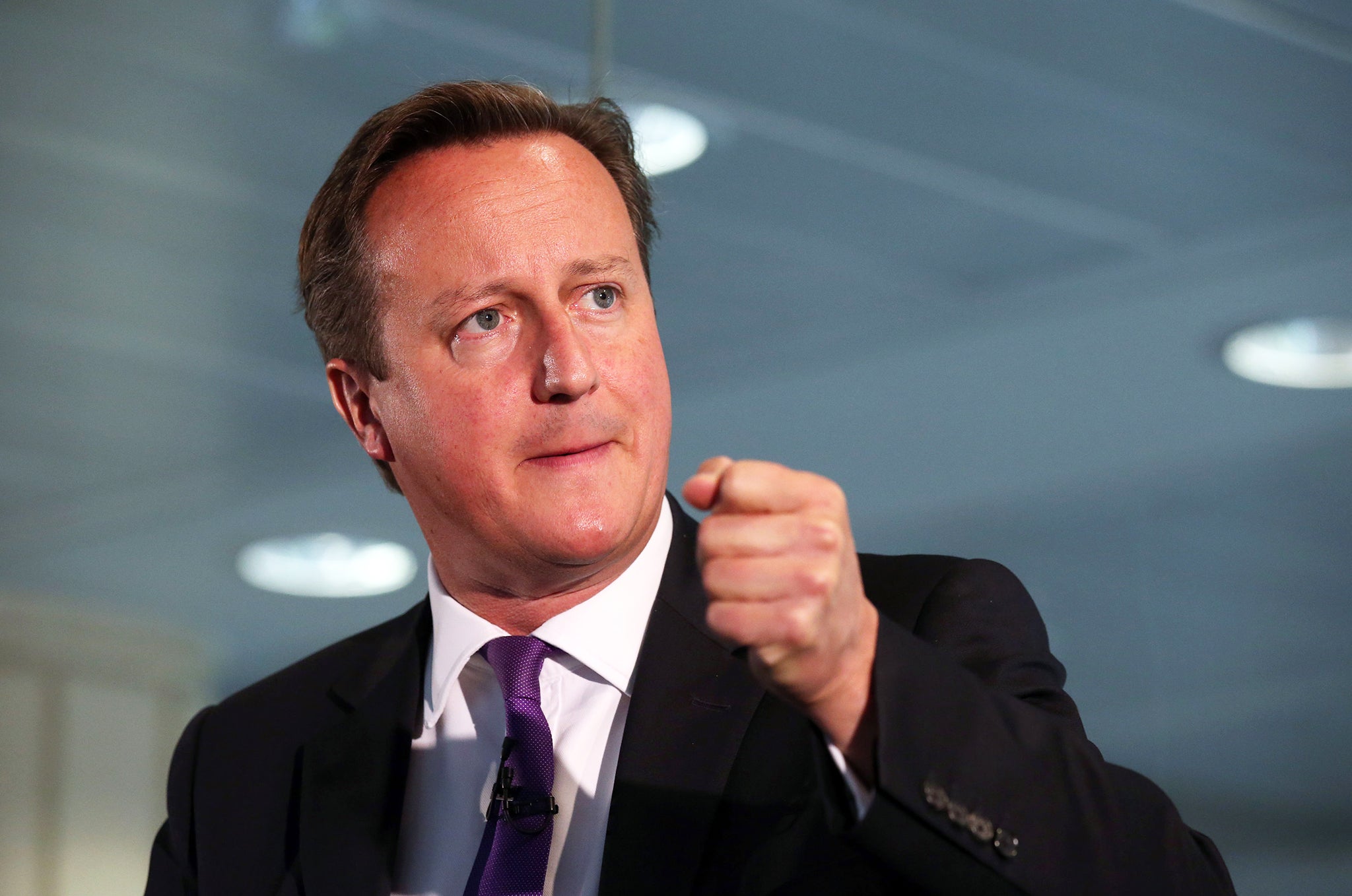The Independent's journalism is supported by our readers. When you purchase through links on our site, we may earn commission.
Scottish referendum results: David Cameron did the right thing, so why does Scotland’s vote feel like a defeat?
The Prime Minister ought to emerge from the referendum with his reputation strengthened, but it will not work out like that


What a relief. Scotland will not, after all, go to the trouble and expense of making itself a fake small country and the UK will not, after all, be diminished. Today ought to be a great day for the British people and for David Cameron, so why does it feel so bad?
We have proved ourselves to be a truly democratic nation, and the Scots have proved themselves to be a democratic nation within that wider nation. The Prime Minister said to the Scottish people that if they wanted to be independent, he would not stand in their way. Unlike the Spanish government, which won’t even allow Catalonia to hold a referendum, this one said that, as the Scots had elected politicians committed to independence, those leaders were entitled to consult the people. More than that, they were entitled to set the date of the referendum and to decide the question, subject to approval by the independent Electoral Commission – which took out the words “Do you agree that”.
Yet Cameron is unlikely to earn much gratitude from the people or from his party for the outcome. The surge in support for the Yes vote, which rose from around 41 per cent to 49 per cent in the last four weeks of the campaign, was a shock. It prompted the panic flight to Scotland of the three Westminster party leaders last week and the sudden offer of more devolved powers, although no one specified what they would be.
The closing argument of the No campaign looked as if it might be, “If you want change vote No to keep things the same”, until Gordon Brown came along and made a more straightforward speech, pointing out that the Scottish National Party hadn’t answered a lot of important questions and that it would be wise, in the circs, not to vote for unicorns and sunshine paid for by the bank of confidence.
I predict - although given the last four weeks I shouldn’t be allowed to predict anything - that the debate about further devolution will become quite bad-tempered and technical and I suspect that most people have already lost interest in it anyway. As it was never clear what it was that the SNP wanted to do that it couldn’t do already, apart from move the UK’s nuclear submarines from Faslane to Plymouth, the precise details of further powers for the Scottish government will not mean much, except to Conservative MPs for whom the subject of English votes for English matters holds an unhealthy fascination.
That is the trouble with democracy. Everyone goes on about how totally marvellous it is, how it has energised, enthused and engaged the Scottish people. How good it is that 80 per cent of them turned out to vote. How sad it was that only 15 per cent of the relevant English people could be bothered to turn out to vote for police commissioners. But you can get 80 per cent to turn out if you propose something that half the country think would solve all their problems and the other half think would destroy civilisation as they know it.
Democracy is rivalrous, quarrelsome and unpredictable. It means dividing people in order to engage them. And it means forcing politicians, as they desperately try to do what they think is wanted of them, to offer things without thinking through what they are doing.
So for the Prime Minister, this morning is the anti-climax. He judged it right. He did the right thing, and everyone will hate him for ever.
As for the rest, I suspect it is over for Alex Salmond. He feared that it was too early for the referendum when he won the 2011 Scottish Parliament elections. That’s why he put it off until now. That’s why he wanted a third option, of more devolution, on the ballot paper. He did well to get so close, but there won’t be another go for a long time.
Today will be the day for the “Who had a good campaign” awards. Gordon Brown will walk away with that trophy, but I don’t think he wants to come back to normal politics. Jim Murphy could lead the Scottish Labour Party. One of the important moments of the campaign was his announcement that he was suspending his tour of the country because of intimidation by Yes supporters: that helped tarnish the happy clappy image of the Yessers.
The pollsters will be especially relieved. YouGov wins by virtue of having the last say. It carried out a call-back survey on polling day to find out who had actually voted, which predicted a 46-54 per cent result, which is 1.3 points off the final figures. Before polling day Panelbase, Survation and Ipsos MORI all put the Yes vote on 47 per cent (YouGov put it on 48 per cent), so honours are pretty even. On the day, the No vote turnout was slightly stronger.
Now I can finally add “Should Scotland be an independent country?” to my list of Questions To Which The Answer Is No.
Join our commenting forum
Join thought-provoking conversations, follow other Independent readers and see their replies
Comments
Bookmark popover
Removed from bookmarks